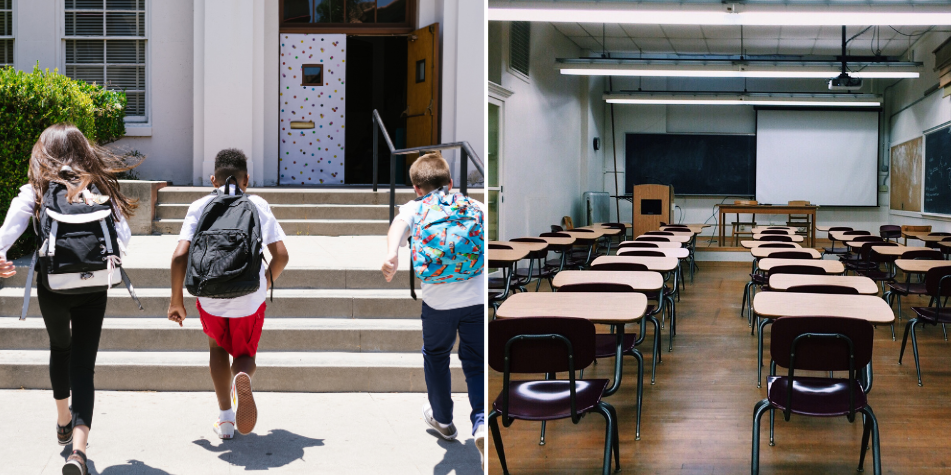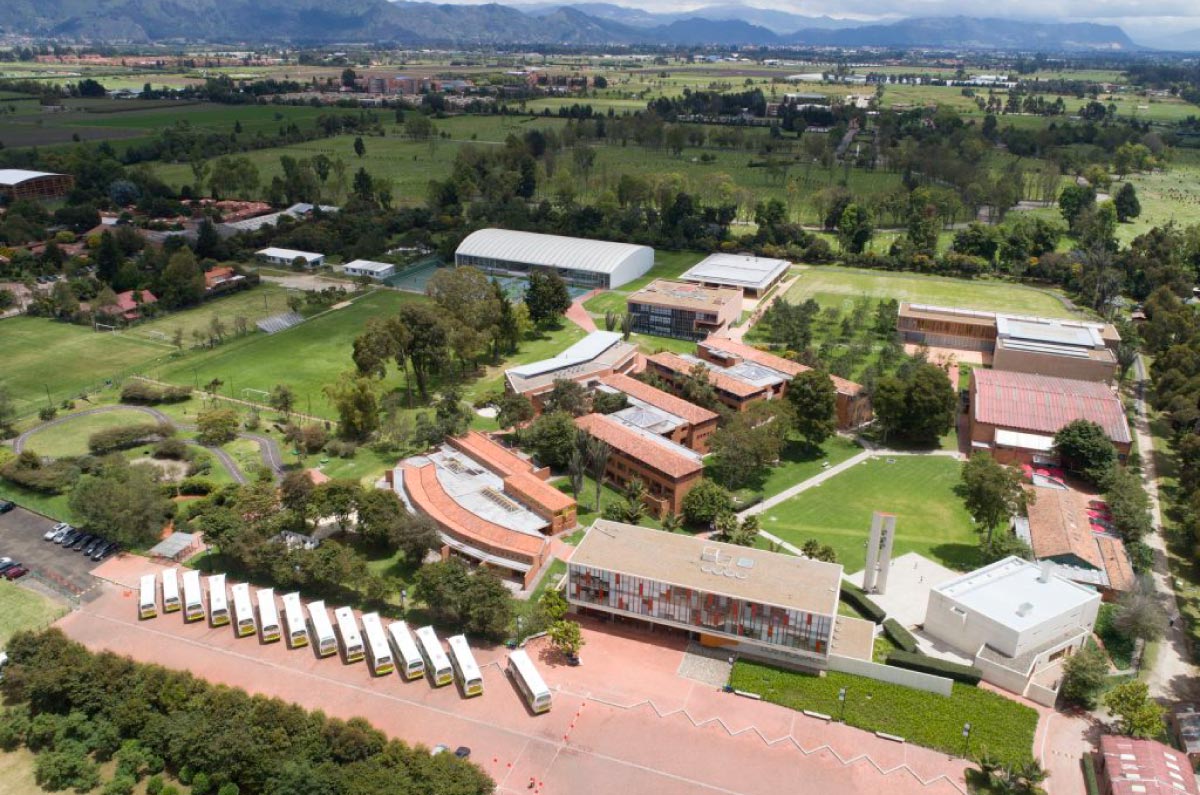Emotional Education Chair in Colombia: How will it be implemented and who will train the teachers?

Pending presidential approval, a law will introduce a new subject: Emotional Education, in Colombia's public and private schools.
The initiative—led by Senators Diela Liliana Benavides Solarte, José Alfredo Gnecco Zuleta, Mauricio Gómez Amín, and Antonio Luis Toño Zabaraín Guevara—completed its fourth and final debate on July 19.
According to the text approved in the House plenary session (i.e., the last debate), the new course will be implemented at the preschool, elementary, and middle school levels.
In this regard, the Ministry of Education will be responsible for training teaching staff to teach this course.
"Considering the scientific and methodological foundation of the Chair of Emotional Education, a training process will be provided to teachers, caregivers, social workers, and counselors, which will be led by the Ministry of National Education," states Article 3 of the law.
In fact, the text indicates that the Ministry of Education may partner with public or private entities to guarantee the training of teachers, caregivers, social workers, and counselors.
Meanwhile, within the framework of the new Emotional Education Program, preschool, elementary, and secondary educational institutions will be required to promote the active participation of parents, caregivers, and students in the development of activities. The measure seeks to strengthen the ties between the school and the family environment to support the emotional well-being of children.

The law is awaiting President Petro's signature. Photo: GTPS
Furthermore, the approved text indicates that the implementation of the Emotional Education course will have as a cross-cutting element the understanding and approach of the sociocultural and economic determinants of mental health and the emotional development of individuals.
"The Ministry of National Education must ensure a territorial focus in the implementation of the Emotional Education Chair, taking into account regional differences in factors such as the impacts of the armed conflict, monetary and multidimensional poverty , mental health indicators, and other factors that the ministry deems relevant."
According to the law, the chair must be based on the following pillars:
- The comprehensive structuring of their identity, including respect for their own individuality and that of others-
- The search for emotional, personal and social well-being.
- The development of constructive and empathetic relationships with their caregivers and love figures, peers, and society in general.
- Development of autonomy, assertive decision-making, and the construction of a life plan.
- Prevention of risky behaviors and problems that affect the emotional well-being and comprehensive development of children, infancy, and adolescents, including child sexual abuse, through self-care strategies, risk identification, and respect for personal boundaries. To this end, agreements may be established with public or private entities with experience in child protection, mental health, education, or sexual violence prevention, thus contributing to building a more resilient and peaceful society.
- Implementation must ensure a differentiated approach for students with disabilities, adapting materials, content, and methodologies to their specific needs.
According to the new law, the Ministry of National Education will implement the assessment of emotional competencies through the ICFES (National Institute of Statistics and Censuses), using the Saber tests or any other test that replaces them, according to each level of education: preschool, elementary, and secondary.
Likewise, the Ministry of Education will have "a period of six months following the entry into force of this law to convene and create the National Commission for Monitoring and Evaluation of the Emotional Education Department."

A committee will be created to monitor the chair. Photo: iStock
EL TIEMPO spoke with Camilo Camargo, principal of Colegio Los Nogales in Bogotá, and he explained the importance of socioemotional education. He also explained that the school has had a curriculum core called "Fines" for eight years.
"Many years ago, people talked about the hidden curriculum, but many schools have begun to formalize the teaching of these types of skills within the curriculum ," Camargo told this newspaper.
In school, how have you traditionally worked on values education? The development of values has always been a key theme at school. We even have a house system where all students are organized into three houses, and the houses are named after three values: responsibility, respect, and honesty. We strive to ensure that these three values are the foundation of everything we teach at school.
Since when have you implemented socio-emotional education more explicitly? About eight years ago, we made the teaching of socioemotional education explicit at the school through a focus we call "Fines," which stands for Comprehensive Values Education. It's a focus that explicitly develops these elements in the curriculum through formal classes—which at school are group leadership classes. In these classes, the topic is discussed and worked on, with established objectives, just as it is in other subjects such as math, science, and physical education. It's also integrated with the academic component and other activities such as social management and the hiking program, which is very important to us because it challenges students to step out of their comfort zones and discover wonderful parts of Colombia. We work on these elements constantly through these spaces.

Los Nogales School Photo: Los Nogales School
We have two hours a week in each grade dedicated to group leadership or assemblies where topics related to social-emotional education are addressed. Additionally, there are annual sessions where the entire social management component and the walking program are developed. We also have specific days to work on values or other skills such as leadership. Throughout the year, we try to incorporate the FINES curriculum into other subjects whenever possible.
What is your opinion on the new law for the Chair of Emotional Education? I think it's important for schools to be more aware of the attention we need to give to developing students in this socio-emotional aspect. These new generations need to know themselves better, identify their strengths and areas of work, and learn explicitly. That wasn't there before, and it's good to have it.
Do you see any difficulties with this new law? It's unlikely to be just another chair, because that makes it unviable. Congress sends us many chairs that aren't so easy to incorporate. But this one has some important elements that allow the teaching of social-emotional learning to become more explicit, and that's positive.
Do you think there might be problems in schools implementing it? Yes, of course. This requires implementation that begins with the teachers. A teacher who is very good at teaching Spanish, for example, may not have the training to teach socio-emotional elements. This requires a unique understanding before being able to teach it. So yes, it presents challenges that require significant support, time, and resources for training and in-depth reflection. Only in this way can good teaching in this field be achieved.
Why do you think it's important for this law to be implemented in schools? What results have you seen? I believe that part of the goal of schools is to develop good citizens and good people for society. This is achieved through spaces for critical thinking, reflection, and emotional education. It's key to give young people the tools to understand themselves, their relationships with others, and build positive ones. In this way, we help them take ownership of their present and future. Specifically, we see that students are more aware of others; they think not only about their individual reality but also about collective realities. This is developed and noticeable in everyday life.
When laws like this are passed, how does the information reach schools? Does the Ministry of Education contact them directly? Generally, the Ministry of Education issues circulars explaining the guidelines that must be incorporated in schools. They are implemented through the secretariats. Honestly, I don't remember if the Ministry of Education has already issued anything regarding this law, but since we already work on these socio-emotional issues, we've been monitoring the matter in case there's anything additional we need to do. I haven't seen anything different, but I'm not sure if they've already sent the circular.
Camilo Peña Castaneda - Editor of Today's Life and Culture
eltiempo



